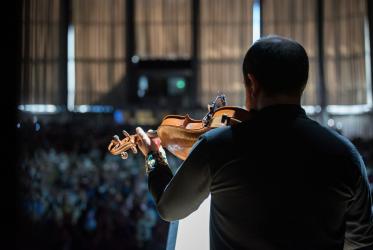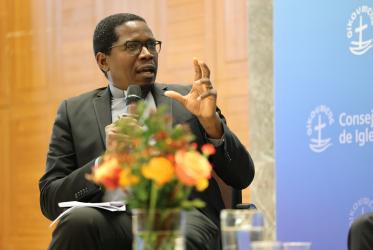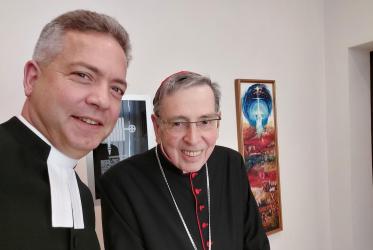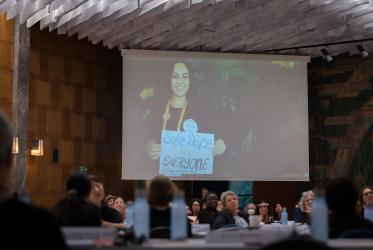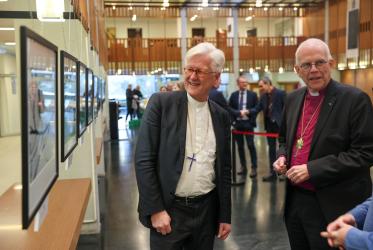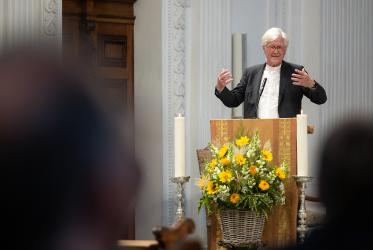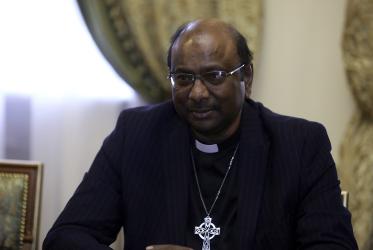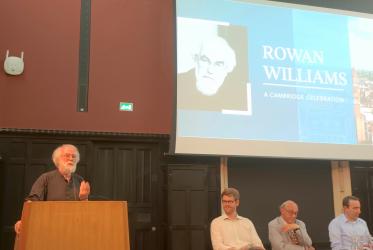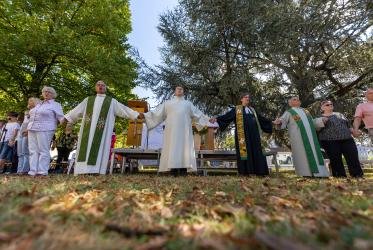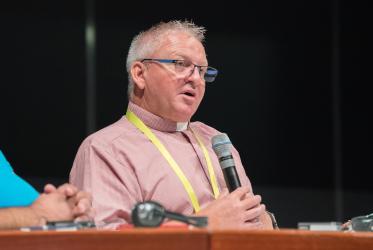Displaying 1 - 20 of 155
21 February 2024
Swedish Mission Council hears WCC reflections on faith in democracy
07 February 2024
A week of true Christian unity
25 January 2024
“Every Picture Tells A Story” photo exhibit opens
30 November 2023
WCC moderator calls for a “reformation of hope” based on love
10 October 2023
In Armenia, WCC general secretary speaks for justice
22 September 2023
Ecumenical delegation visits Armenia
19 September 2023
Chateau de Bossey thriving as lives are transformed
08 September 2023
Ecumenism in the Philippines means hope and resilience
22 August 2023
